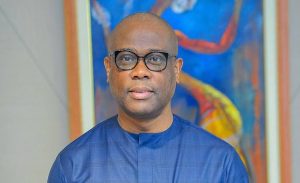Indigenous Peoples’ Day is commemorated on October 10 in lieu of Columbus Day. This day is set to highlight the struggles of the Native Americans who were colonised by the Italian explorer Christopher Columbus who settled in America back in the 16th century.
Many have accused the US institutionalism of propagation of genocide and colonialism into communities that had existed in the United States for hundreds of years. However, many people across the country continue to celebrate Columbus Day or Italian Heritage Day as a source of pride.
Why is Indigenous Peoples’ Day celebrated?
The first seeds of Indigenous Peoples’ Day were planted in 1977 at a United Nations International Conference on the grounds of unequal treatment. South Dakota was the first state to observe the day in 1989. Berkeley, California, and Santa Cruz, California, followed suit.
Although the day was still known as Columbus Day until 1937, many individuals began calling it Indigenous Peoples’ Day to honour the Native American‘s rich cultural heritage.
Also Read: What is Native American Heritage Day?
Columbus Day was always painful for Native Americans because it lauded the violent past of 50 years of colonial violence and subjugation by European explorers like Columbus and others who settled in America. Indigenous Peoples’ Day highlights the emotional distress, trauma, and unfulfilled promises that were expunged by the Columbus Day celebration.
Also Read: Acknowledge and reflect: Social media’s message on Indigenous Peoples’ Day
President Biden stated in a statement issued on Friday for this year’s holiday that Indigenous Peoples’ Day is destined to “honour the sovereignty, resilience, and immense contributions that Native Americans have made to the world.”
Advocates of the day believe it will help bring awareness to some of the socio-political marginalisations of Indigenous people as they are discriminated against and disparately affected by the climate crisis, gender-based violence, and health concerns, as well as Indigenous lands impacted by mining, digging which allegedly has led to the erasure of the native culture.
Audra Simpson, an anthropology professor at Columbia University, mentions “pipelines and fracking projects running through our territories” as well as “ongoing and disproportionate violence directed at Indigenous people, particularly women, girls, and trans people.”
“There is much more attention — media attention, public attention — paid to Indigenous peoples’ struggles and value than there was 50 years ago,” said Jonathan Mazower, communications director for Survival International, an organisation that works with and advocates for Indigenous peoples’ rights, according to New York Times.






